Four Partnerships Offering Roadmaps to Decarbonization


With COP27 now in the rearview mirror, we can point to a commitment to global decarbonization as one of the outcomes resulting from the recent global climate conference. Whether any commitments out of Egypt actually pan out is debatable — especially considering the continued finger-wagging and arguing between the world’s largest polluting countries that are still ongoing days after COP27 ended.
Government is taking the lead on decarbonization, but business needs to step up
Even before COP27 started, recent legislation enacted across the globe shows promise for driving decarbonization. Take, for example, the potential impacts of the Inflation Reduction Act in the U.S. Through the Inflation Reduction Act, the U.S. will be investing billions of dollars in supporting business and industry that demonstrate reporting of and reduction in greenhouse gas emissions.
And, if enacted, the Federal Supplier Climate Risks and Resilience Rule that President Biden proposed at COP27 would require major contractors to publicly disclose their greenhouse gas emissions and climate-related financial risks and set science-based emissions reduction targets.
Recent policy shifts such as Japan’s Green Transformation (GX) program and the European Union’s climate crisis package also could pave the way for more deployment of renewables. China, India and South Korea have also launched policies that will boost spending on renewables and other cleaner forms of energy this decade as well.
In addition, a coalition of 19 countries including the U.S. have formed the The Net-Zero Government Initiative at COP27 in order to harness the power of government to increase the demand for business and industry to embrace decarbonization. These governments have committed to achieve net-zero government emissions by 2050, with strategies and interim targets to be published before next year’s COP28.
We also can’t dismiss local efforts to tackle decarbonization. Take a look at the Under2 Coalition, which brings together over 270 state, provincial, regional and local governments representing 1.75 billion people and 50 percent of the global economy. Members commit to keep global temperature rise well below 2°C with efforts to only reach 1.5°C, with over 40 states and regions committing to reach net-zero emissions by 2050 or earlier.
Never dismiss the power of partnerships
But it isn’t enough for governments to take action and wait for the private sector to do its part to push forward on decarbonization. To that end, partnerships can often drive climate action efforts further and faster. These four in particular standout:
The Clean Energy Ministerial Industrial Deep Decarbonisation Initiative (IDDI) is a global coalition of public and private organizations who are working to stimulate demand for low carbon industrial materials. Within the next three years IDDI expects to have encouraged a minimum of ten governments to make public procurement commitments for low-carbon steel and cement by 2025.
The We Mean Business Coalition is a global nonprofit coalition of businesses and business-focused nonprofits with a goal of halving emissions by 2030 and accelerating an inclusive transition to a global net-zero economy by 2050 through creating a comprehensive roadmap for business to follow.
First Movers Coalition is a global initiative to jump-start the decarbonization of the 7 industrial sectors that currently account for 30 percent of global emissions. Members commit to purchasing a proportion of the industrial materials and long-distance transportation they need from suppliers using near-zero or zero-carbon solutions, despite the premium cost.
The Climate Group is a non-profit organization that works with businesses and government leaders around the world to address climate change with a goal of achieving net-zero carbon emissions by 2050. This includes programs such as Concrete Zero and Steel Zero, pooling its members' collective purchasing power and influence to shift global markets, investment and policies towards the sustainable production and sourcing of these materials.
How partnerships can generate positive climate action impact
First Movers Coalition member companies work with their suppliers to help them achieve the required greenhouse gas reduction by 2030. Energy companies such as Iberdola in Spain and Ørsted in Denmark have adopted similar approaches to work with their suppliers.
This strategy increases the impact of decarbonization efforts by incorporating all levels of the supply chain in the process — and various representatives from these companies made such points during the COP27 events in Egypt.
Ørsted, for example, launched a supply chain decarbonization program in 2020. Rasmus Nikolaj Due Skov, Senior Director, Head of Global Engagement & Bid Solutions, reported during a talk in Egypt that at the time few of their major suppliers were reporting carbon emissions, and none had set science-based targets. By the end of 2021, 97 percent were reporting on emissions and 36 percent had set science based targets.
Further, as Tareq Emtairah, Director of Sustainable Energy and Decarbonization Division with IDDI explained, “demand signals have always been a key driver of innovation so if you want to get industry and private sector to deliver cutting edge innovations you just have to ask for it, demand it, and they will do it.”
We’ll need more of these partnerships, and an expansion of current ones, if the world can truly achieve decarbonization. There is no shortage of critics, such as Bill McGuire, Professor Emeritus of Geophysical & Climate Hazards at University College London. Writing for the Guardian, McGuire summed up COP 27 shortcomings, and the climate conferences before it: “It really does beggar belief, that in the course of 27 COPS, there has never been a formal agreement to reduce the world’s fossil fuel use. Not only has the elephant been in the room all this time, but over the last quarter of a century it has taken on gargantuan proportions — and still its presence goes unheeded.”
This article was written with Leon Kaye.
Image credit: Rudy and Peter Skitterians via Pixabay
Reflections from a Millennial Attending COP27: 30 Years Later and We are Still in Climate Limbo
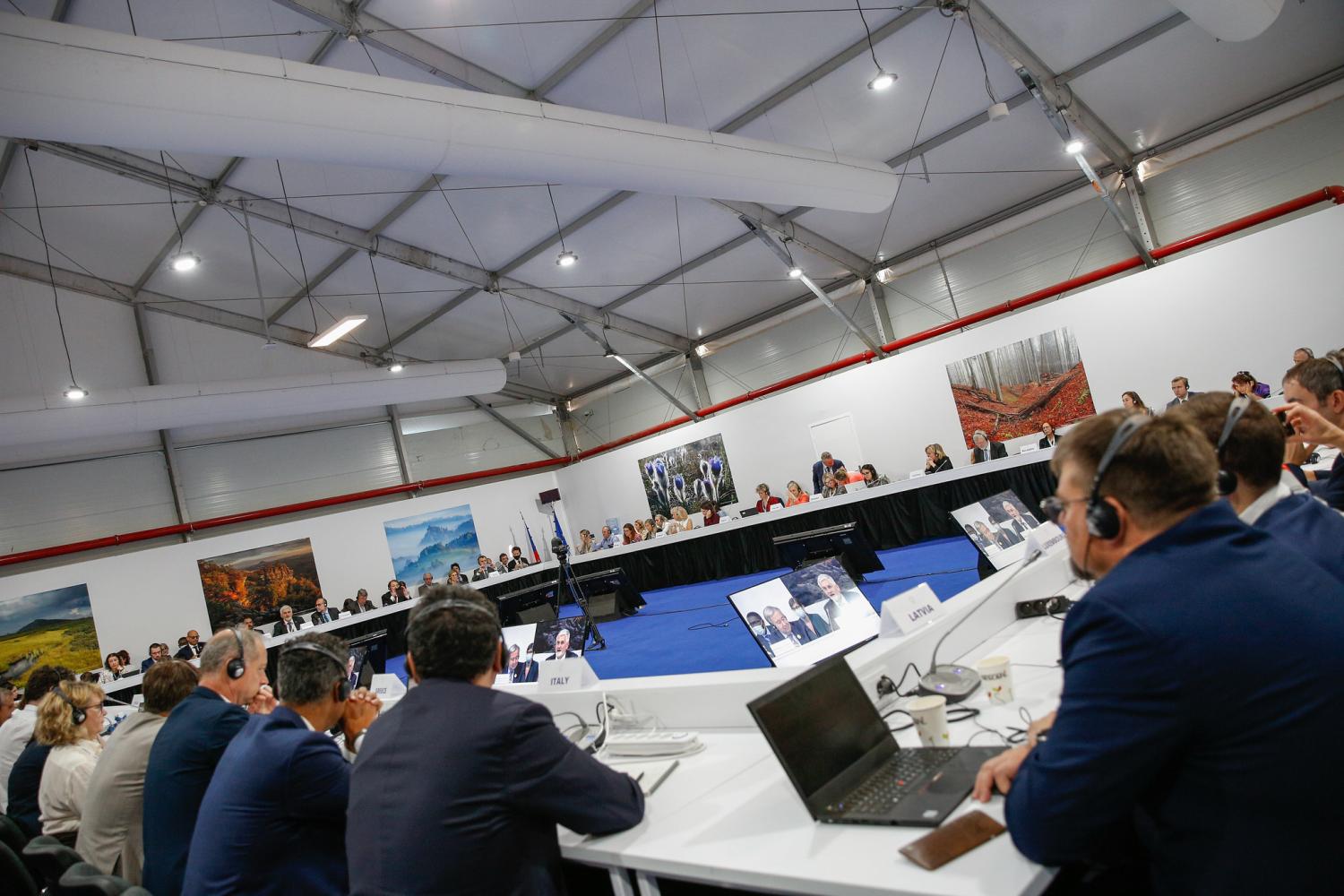
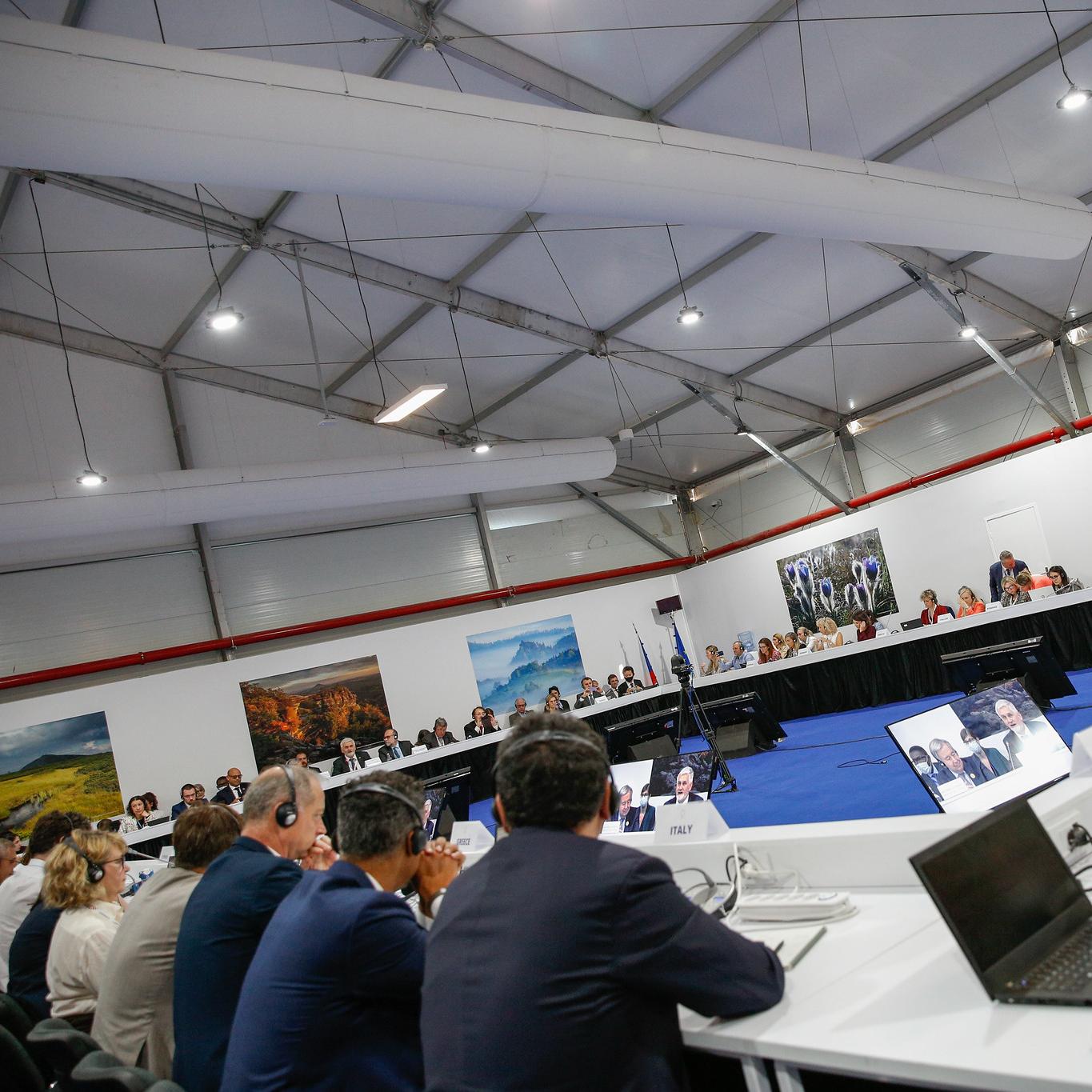
As with every global climate conference across the past three decades, expectations were high at COP27 in Egypt for countries to work with renewed fervor in the collective fight against climate change. The world was watching to see if we would finally make significant progress in two critical areas: phasing out fossil fuels from the global economy to mitigate harmful carbon dioxide emissions, as well as financing adaptation and recovery from loss and damage in the regions most vulnerable to climate change impacts. As a millennial who has now attended five U.N. climate conferences (COPs) across the past seven years, I witness the same story every time:
- Fossil fuel lobbyists proposing false solutions, and delegates from developed countries touting themselves as leaders of addressing the climate crisis when they are the biggest current and historical polluters.
- A blatant disregard of grassroots voices from the Global South bearing the brunt of climate impacts which echo outside the negotiation halls during their daily actions.
- Negotiators working arduously day and night rewriting policy documents that would simultaneously satisfy all country, political and economic agendas while effectively and equitably addressing climate change.
One of the other observations I made — now the topic of my Ph.D. dissertation — is the growing communication divide between climate scientists and policymakers in these spaces. For the 10 days I attended COP27 in Sharm El-Sheikh, I spent most of my time at the pavilion hosted by the Intergovernmental Panel on Climate Change (IPCC) and the World Meteorological Organization (WMO), located on the other side of the venue from the negotiation rooms.
While a few negotiations in the first week invited these experts to share with delegates their findings from the IPCC’s sixth assessment report on climate change, most of their insights were heard in their small pavilion and the occasional side events in front of an audience of mostly observer organizations.
The IPCC sessions provided crucial information from the Working Group II and Working Group III reports on the vulnerability to climate change and evidence-based options for climate adaptation and mitigation by a range of diverse, interdisciplinary scientists traveling from all corners of the world to share their insights.
However, their sessions were frequently overshadowed by the large, flashy neighboring pavilions, some hosted by corporations and fossil fuel-rich countries. Technical difficulties and the tumultuous surroundings of the expansive “world climate fair” made it difficult to hear the IPCC scientists present the best available evidence on the multifaceted challenge we face and potential pathways our society can embark on, such as climate resilient development. The irony is that the COP is founded on these scientific findings and yet politicians and policymakers, particularly from developed countries, seemed not to be heeding their calls for more urgent action.
I have seen a great deal of appreciation but limited attention and use of the findings from the IPCC reports by policymakers at the COPs. One potential solution is a redesign of the panel to make it more effective in meeting its mandate of directly informing policy. What could be helpful is going beyond assessments to have deeper interactions and a better two-way flow of information between policymakers and scientists, with science not sidelined away from policymakers.
As I envision it, the IPCC would not only be communicating the science to the policy arena, but policymakers would also share their policy needs with the scientists. In the best-case scenario, we’d see more coherent, evidence-based decisions that are vital for tackling this climate emergency that my generation and following generations will inherit.
As a COP veteran, I see the difficulty of navigating these multi-stakeholder, inter-governmental processes where everyone has their own agenda and ideas on the best way to address climate change. It is frustrating to realize how long it has been since the Paris Agreement came into force and how far we still are from limiting global warming to 1.5 degrees Celsius.
The minimal progress made by a majority of the countries to achieve their nationally determined contributions is disheartening. As countries continue to disagree, holding climate talks hostage, many are on the verge of giving up on this process.
It is reasonable to ask: Is this really the best way to address the complex problem of climate change? No one has a concrete answer. The one thing we can agree on is that, for now, this is the best we have. To create and collectively agree on an alternative mechanism that would be more effective and inclusive than the UNFCCC would take time that we unfortunately do not have.
So, time and again, we all eventually return to this space to make countries accountable for their inaction on climate adaptation and mitigation. And, with the limited power that observers have, we try to enhance the equity and evidence base of COP decisions.
I still hold out on hope that we’ll one day see results from the relentless efforts of climate justice organizations that have attended COPs since the very beginning. They played a huge role in bringing adaptation finance and loss and damage to the top of the agenda at COP27, so that we prioritize the most vulnerable groups in this climate crisis. The landmark decision of COP27 in establishing a funding facility for loss and damage is largely thanks to them pressuring negotiators since day one of international climate negotiations.
I know I can’t speak for my whole generation, but my hunch is that most millennials are aware of the daunting challenge of climate change and prepared to carry on the good fight, taking a different approach than the generations before us who caused this mess. We will do our best to prioritize people over profit, kick the big polluters proposing false solutions out of these negotiations, facilitate a just transition, bridge the silos and enhance cooperation across sectors, halt ecocide and shift finance toward climate adaptation and recovery from loss and damage in vulnerable developing countries, and make this planet habitable for animals and humans alike. It may be far-fetched, and it certainly won’t be easy. But it’s better to hold onto optimism than give in to despair and climate anxiety. After all, what is the alternative? Ours is a future worth fighting for.
Image credit: UNFCCC via Flickr
Women-Led Alliance Launched at COP27 Demands Climate Finance for Indigenous Peoples
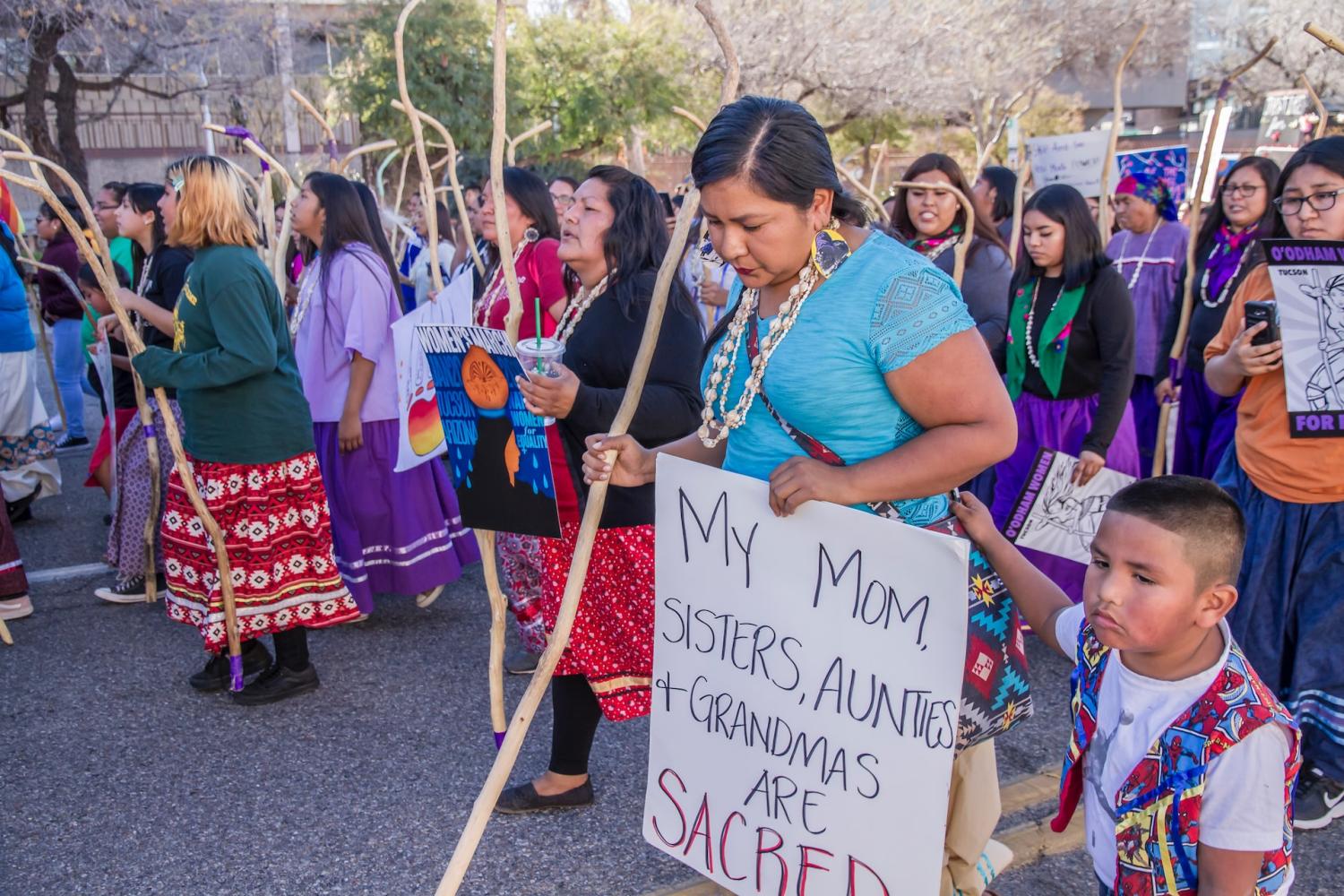
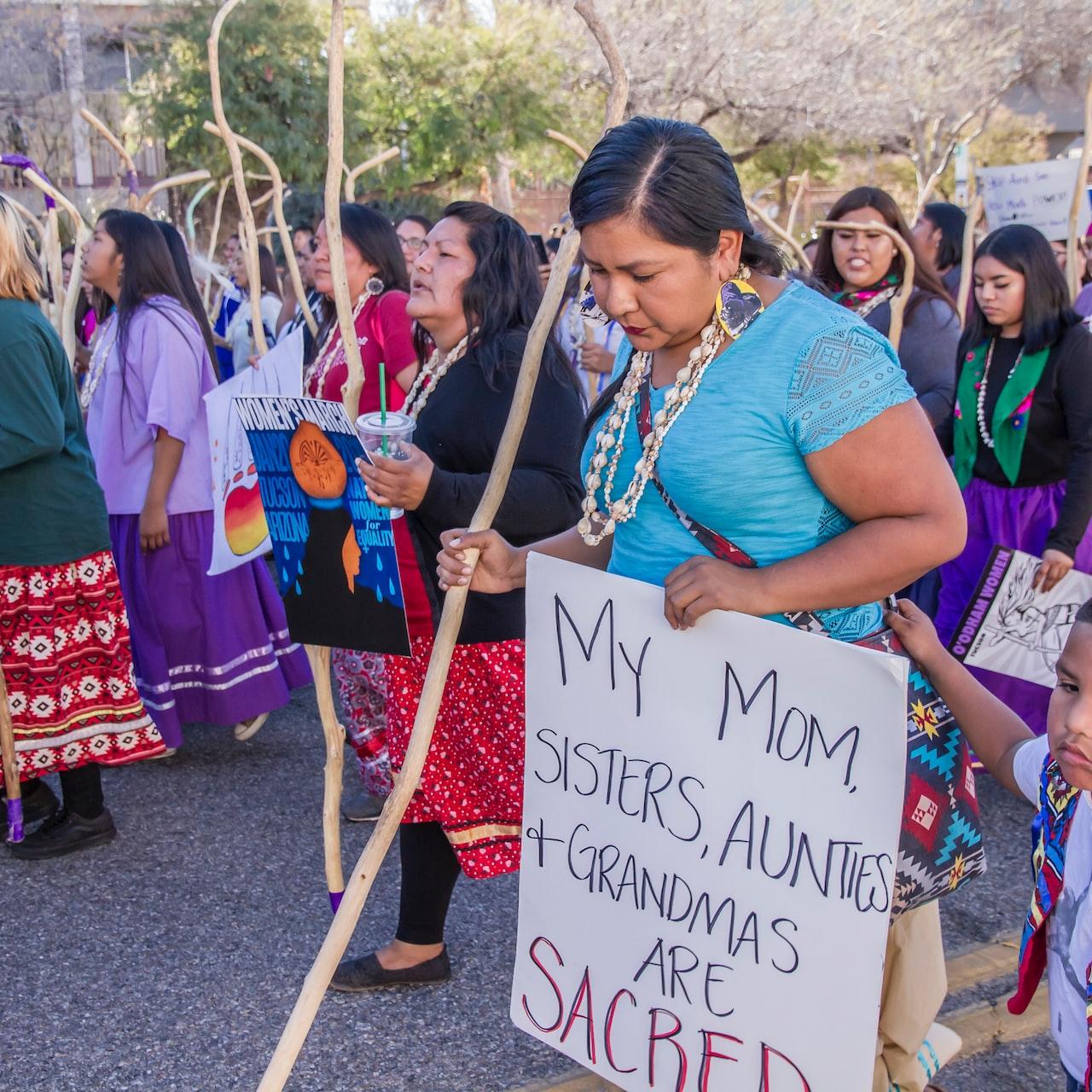
Despite seismic government pledges to finance climate action in support of Indigenous, Afro-descendant and local community women and girls’ organizations, an overwhelming portion of the money has failed to reach these intended groups. Women in Global South Alliance for Tenure and Climate, a new advocacy coalition of 41 grassroots women’s organizations from Africa, Asia and Latin America, hopes to reverse these funding deficiencies.
The coalition launched at COP27, the U.N.’s climate summit held this year in Sharm el-Sheikh, Egypt. The alliance seeks to create an equitable shift in the climate finance landscape to ensure that the local women on the frontlines of climate action and biodiversity conservation are receiving direct, flexible and long-term funding to support their communities.
Climate financing isn't reaching intended organizations
Historically, Indigenous peoples have been slow to receive their share of money earmarked for climate protection projects within their communities. A new study from two nonprofits focused on rainforest conservation — Rights and Resources Initiative and Rainforest Foundation Norway — found that just 17 percent of global climate funding meant for local, Indigenous communities is led by those populations.
The money is instead funneled through larger organizations who have the bandwidth and resources to jump over lengthy administrative hurdles introduced by donors and governments. Indigenous peoples and local community organizations receiving a fraction of the direct funding threatens to exclude them from making important decisions that can have an impact on their communities.
The funding disparity is even starker for women’s Indigenous groups. A 2017 report tracking funding data from 2010-2013 revealed that only 0.7 percent of all human rights funding went to Indigenous women’s organizations. Omaira Bolaños, director of the Latin America and Gender Justice Programs at Rights and Resources Initiative, says the alliance will “rectify this historical gap in access to direct climate finance for women and girls.”
Will more pledges equal more direct funding for Indigenous women’s groups?
Government and donor pledges for Indigenous rights and gender equality have ticked up in recent years. In 2021, at COP26 held in Glasgow, Scotland, the governments of Canada, the U.K. and U.S. committed more than $7 billion to invest at the intersection of climate action and gender.
Funders also pledged $1.7 billion to support collective and territorial rights for Indigenous peoples and local communities. Reflecting historical funding patterns, however, reporting from Devex reveals that only 7 percent of the $1.7 billion land tenure and forest guardianship pledge has gone directly to those groups.
An alliance to change the funding landscape
Despite this discouraging trend of channeling money through intermediaries, the increase in pledges presents a ripe opportunity for the newly formed Women in Global South Alliance for Tenure and Climate to influence the way the funds are ultimately dispersed. In the build up to COP27, the alliance members co-signed a call to action for governments to urgently provide direct funding to the groups who have been historically under-supported and under-funded.
Archana Soreng, a youth climate activist from the Kharia Tribe in India and a member of the U.N. Secretary General’s Youth Advisory Group on Climate Change, says Indigenous, Afro-descendant and local community women and girls should be “leaders of climate action, not victims of climate policies.”
“Climate finance must not leave Indigenous, Afro-descendant, and local community women and girls behind,” Soreng said in a press release. “We are working on a global issue that needs global perspectives which is what the formation of this new women’s alliance is about.”
Image credit: Dulcey Lima via Unsplash
Secondhand Sunday is Fashion’s Latest Initiative in the Rise of Resale
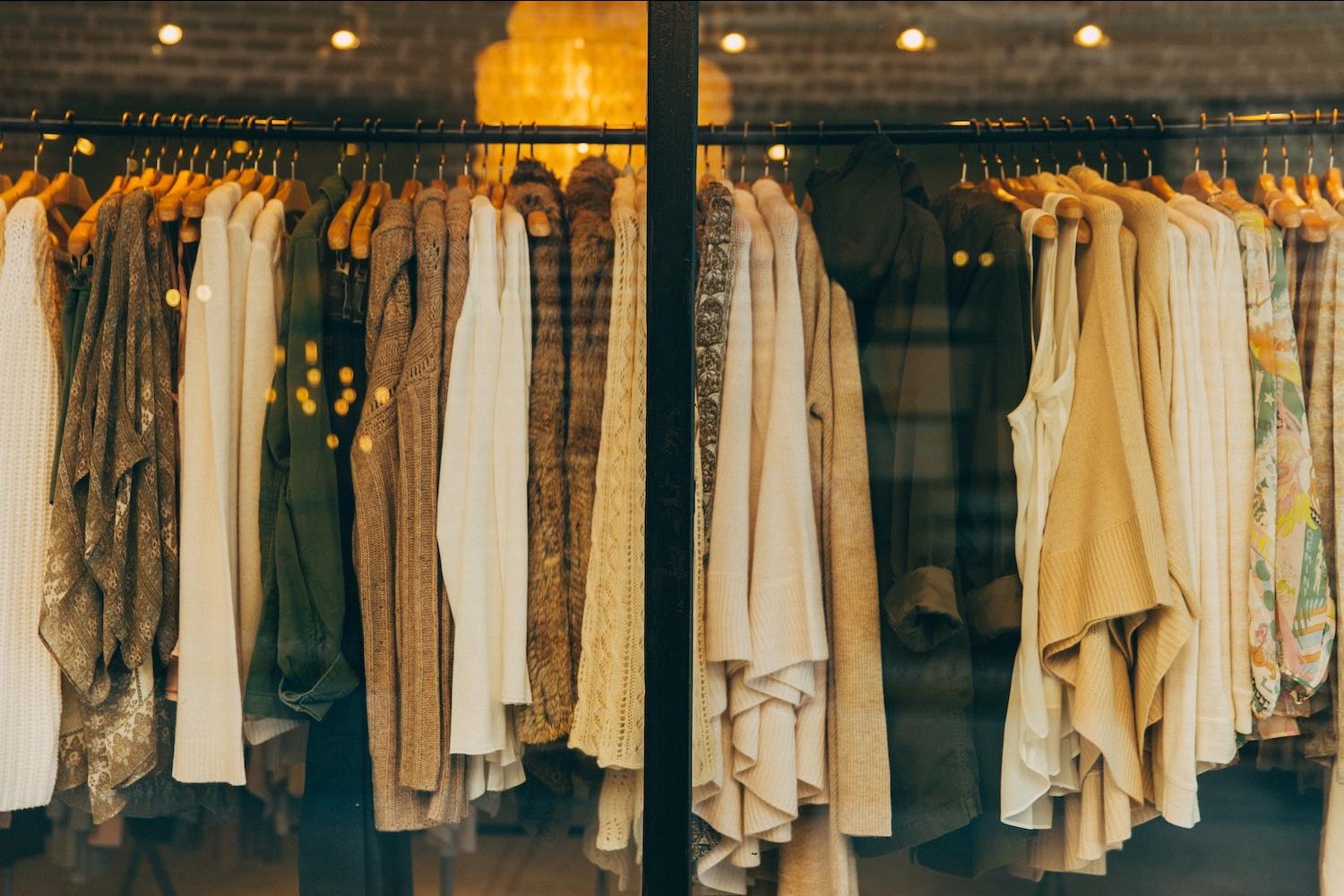
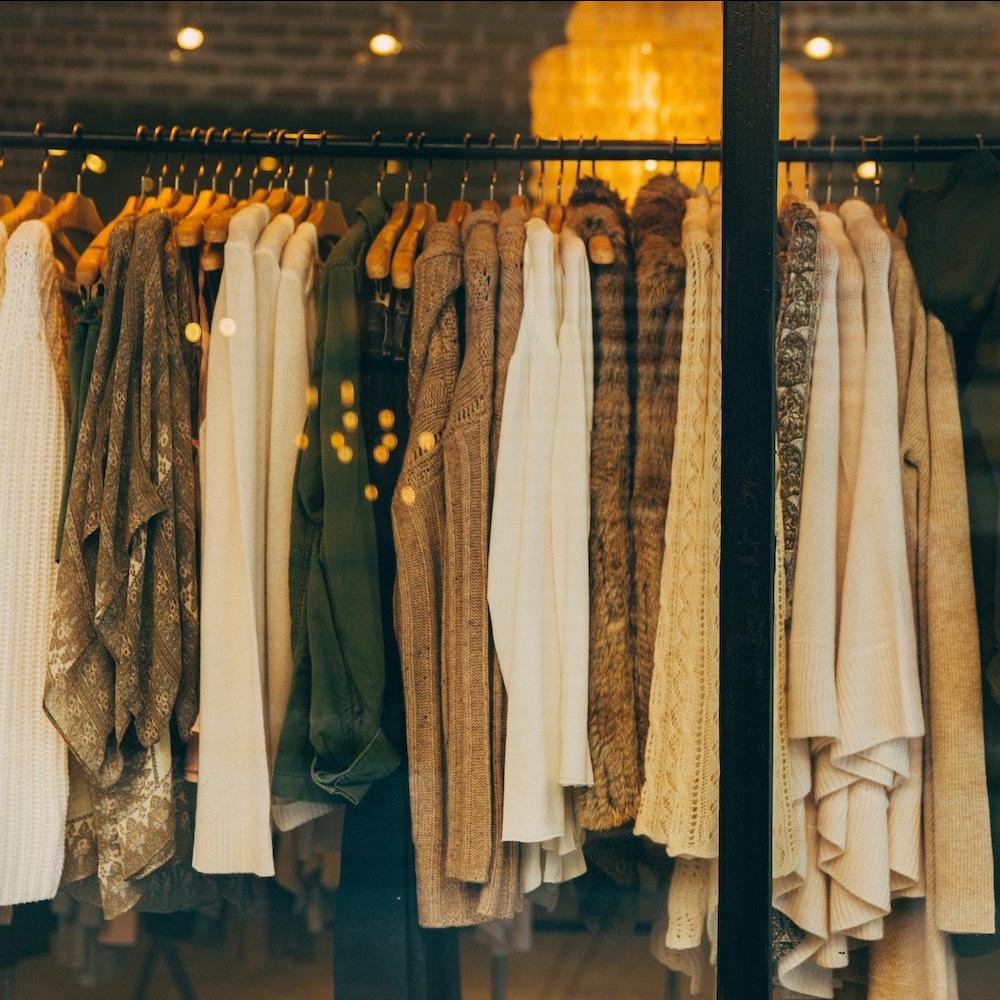
First came Black Friday. Eventually Small Business Saturday, Cyber Monday and Giving Tuesday arrived. But what about the Sunday after Thanksgiving? Online marketplace Poshmark has the answer: Secondhand Sunday, a new holiday dedicated to “supporting secondhand sellers, circular fashion and the planet.” Poshmark is calling on people to buy used instead of new on Nov. 27 and to share their finds on social media with the hashtag #SecondhandSunday.
While this new holiday has yet to grow into an actual social movement, it is another example of how perceptions of secondhand shopping are continuing to evolve. No longer is “buying used” something only done for oneself. It’s an opportunity to shop sustainably and affordably while buying unique, high-quality gifts for others, too.
Call it what you will — secondhand shopping, thrifting, upcycling, vintage hunting, and so on — but consumers are buying previously owned clothing, shoes and accessories in record numbers. And the trend is expected to continue throughout the 2022 holiday retail season.
Inflation’s influence
According to a September survey conducted by Deloitte, the two most popular reasons people gave for gifting secondhand items this holiday season were “to save money overall” and “to afford something a little nicer." These results are far from surprising, considering the rise in costs of everything from utilities to groceries this year. Many consumers are looking to cut spending any way they can, and buying used is one way to stretch those budgets even further.
The same survey found clothing is the most popular secondhand gift category this holiday season, with more than half of respondents saying they are most likely to buy used attire.
“Certified pre-owned” fashion
In response to this demand, many traditional fashion retailers are entering the resale market directly. In fact, 48 percent of retail executives in Deloitte’s survey said their companies “planned to sell refurbished/used products this holiday season.”
Websites like Poshmark earn revenue by charging a commission for each transaction individuals make on their online platform. What many fashion brands are doing now, however, is selling previously owned merchandise directly to consumers, just as they would with new products. This process is often referred to as “Resale as a Service” (RaaS). RaaS programs are often likened to “certified pre-owned” programs run by car companies. Both new and used merchandise are sold in the same branded retail setting (in person or online), and customers can be reassured that the used items have passed quality inspections before being resold.
ThredUp reports that the number of fashion brands with RaaS programs has grown by 300 percent this year compared to 2021. Some of the biggest players entering the field include Tommy Hilfiger, Athleta, PacSun and Vera Bradley.
As more sustainability-focused (as opposed to fast fashion) brands enter the RaaS space, the hope is that the stigma of “buying used” will dissipate, and consumers will look to resale first when searching for the perfect gift.
Millennials and Gen Z: Secondhand shopping becomes second nature
For many consumers in their twenties and thirties, secondhand shopping is already part of their routine. PwC reports that 53 percent of millennials will include resale or upcycled items on their holiday shopping lists, compared with 37 percent of shoppers across all ages. (Specific numbers for Gen Z were not available.)
Millennial and Gen Z shoppers are especially motivated by the “concern for and awareness of the environmental and social effects of the consumption process," Michelle Childs, an associate professor of retail merchandising and management at University of Tennessee, told TriplePundit. “These shoppers tend to think ahead about if their purchases and values align. They consider things like, ‘will this item end up in a landfill after only a handful of wears?’ or ‘was this shirt made in less than favorable conditions?’ They genuinely care about the impact.”
Another important factor — specifically for Gen Z — when it comes to buying secondhand fashion, whether for themselves or others? Uniqueness.
“Gen Z-ers have more discretionary income than previous generations do. They are often willing to pay more for secondhand items,” Childs said. “It used to be you only bought used because you couldn’t afford new. Now, it’s so you can be unique. Gen Z consumers participate in trends, but also want those one-of-a-kind finds. Secondhand shopping — especially vintage fashion — combines both of these desires while also helping the planet.”
Image credit: Hannah Morgan/Unsplash
A Climate Change Message to Governments: Meet Today’s Needs and Build for Tomorrow


Drought at Lake Millerton in Friant, central California
For years, we’ve been relentless in pondering the key questions about the impact of climate change: Do global citizens fear it? Are the structures we build able to withstand — and mitigate — climate change? And, who must take the lead in creating this infrastructure?
What do citizens want done about climate change?
We rarely, if ever, get a real sense of what global citizens think about those questions. But, Edelman’s respected 22-year-old Global Trust Barometer, which the giant communications agency now employs to gauge sentiment on special subjects, has found some interesting and insightful answers in securing the pulse of 14,000 respondents worldwide about climate.
The major takeaways:
Seventy-seven percent worry about climate change leading to drought, rising sea levels and other natural disasters, and 57 percent agree little or no progress has been made to address it.
Seventy-one percent say we must move faster on climate change issues, and two-thirds say we’ll have to dramatically change our habits to address climate change because institutions alone cannot do it.
Fifty-two percent believe politics drives climate policy, edging out the 48 percent who think science drives policy.
Fifty-four percent think national governments should take the lead in addressing climate change, followed by state/regional governments and local governments – and then comes business, media and NGOs.
Citizens aren’t seeing leadership on climate change
Yet, while respondents think governments must take the lead, a majority – 54 percent — contend governmental leaders are unwilling to pass tough legislation that would force businesses and individuals to make climate-related changes.
This finding about government action — or inaction — is disturbing when it comes to building the structures required to withstand climate change. Take what we know increasingly about local government regulation regarding green infrastructure. In rural and less-dense areas, the policy options for incorporating green infrastructure include ordinances that preserve or restore pre-construction conditions on development sites, plus ordinances that direct development away from sensitive areas such as wetlands, streams and significant natural resources.
In cities, however, green infrastructure offers the way to protect and restore natural habitats. Such green infrastructure includes plants and permeable surfaces that infiltrate stormwater into soil, thereby reducing levels of urban runoff to city storm sewers.
The proverbial carrot-and-stick approach – that combination of reward and punishment to induce desired behavior – proves particularly instructive in local regulations.
Here’s a “stick” example: A zoning ordinance adopted in January 2018 by Norfolk, Virginia’s city council includes a unique “resilience quotient system” requiring housing developers to reach a certain point total, based on the size or number of units, by including various resilience measures in the project’s design. Stormwater management is one such measure, earning points for installing a green roof, rain gardens or other stormwater infiltration systems; or using pervious paving systems, tree planting or providing a community garden space, among others.
In Washington, D.C., “the green area ratio” is a zoning regulation for environmental sustainability that sets requirements for landscape elements and site design to help reduce stormwater runoff, improve air quality, and mitigate urban heat. It sets minimum lot coverage standards for landscape and site design features to promote greater livability, ecological function, and climate adaptation in the urban environment.
As for the “carrot” approach, Philadelphia encourages more stormwater retention and green infrastructure practices by creating subsidies, grants and rebates for both residential and nonresidential projects. The city offers a lower price for qualified nonresidential customers and contractors to design and install stormwater best management practices that reduce stormwater pollution and enhance water quality.
In New York, a multiagency Green Infrastructure Grant program led by the Environmental Protection Department offers grants for up to $5 million to private property owners in combined sewer areas of the city who promise 20 years of maintenance. Funds are provided for green infrastructure projects that manage the first inch of rainfall, and they include blue roofs, rain gardens, green roofs, porous pavement and rainwater harvesting.
The EPA offers a handy guide for overcoming barriers to green infrastructure as well as guides for site-scale green infrastructure practices.
As for the Edelman Trust Barometer on climate, it maintains that institutions leading climate action must show the benefits to individuals “because people recognize the positive impacts of current climate change solutions on a societal level more than on a personal level.”
That reminded me that in 2006 in Chicago, where I’m based, I worked with the City Council and developers to pass what may have been the first performance-based stormwater management ordinance that drove green roofs, permeable parking lots, tree planting and bioswales on private property.
Today, my business and my community benefit from this greening’s positive impacts. Perhaps based on them, subsequent city administrations have been able to go further with green stormwater infrastructure in public capital projects, permeable alleys and natural "streetscaping."
This possibility proves instructive in contemplating a conclusion of the Edelman climate report about government’s responsibility: Regulating for green infrastructure, which grows in resilience benefit over time, even as climate change risks also grow, is one helpful opportunity.
That message for governments is a simple one: Meet the needs of today — and build for tomorrow.
Image credit: Simon Hurry via Unsplash
3p’s Essential Thanksgiving Sustainable Snacking Guide
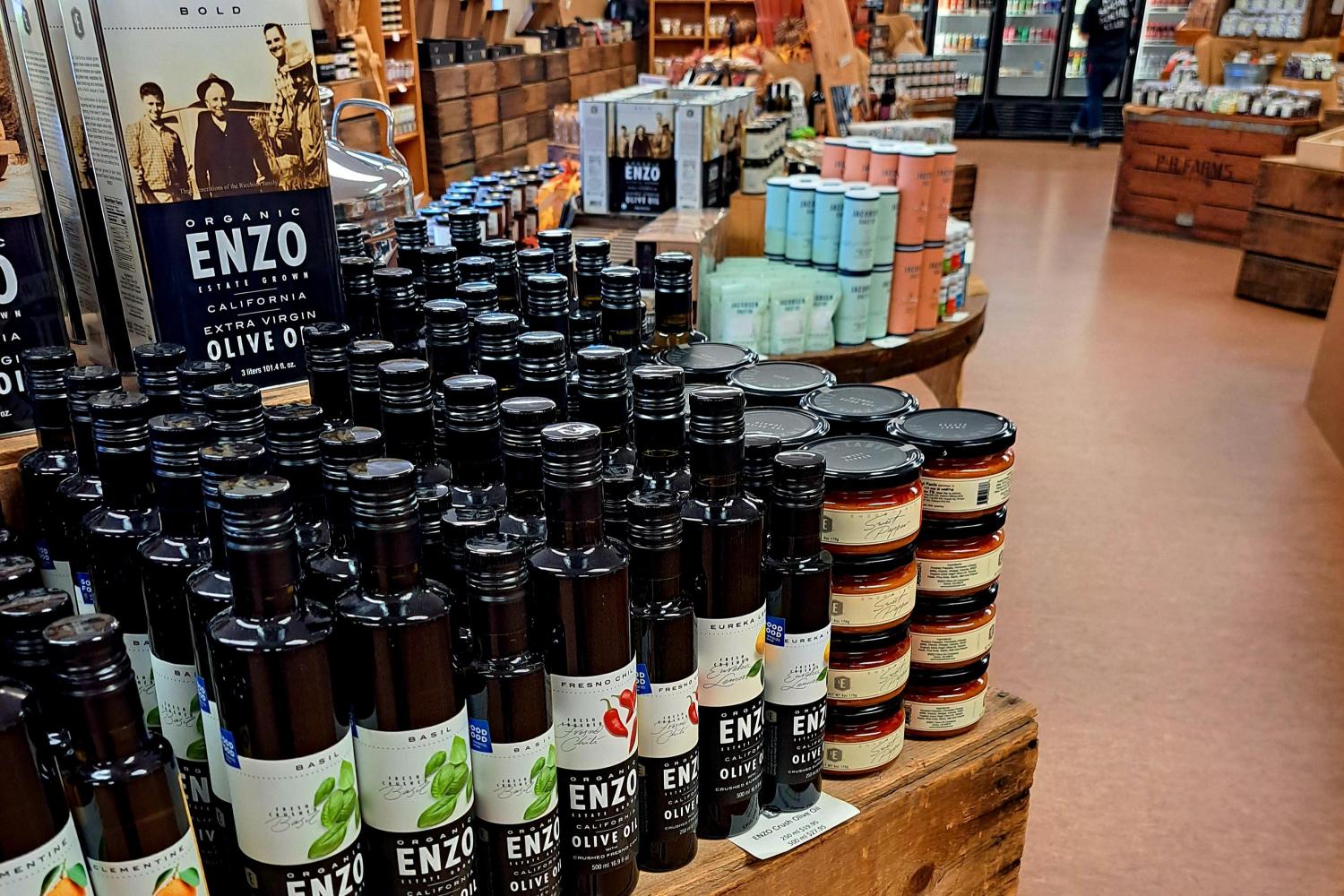

Enzo's Table store in the outskirts of Clovis, CA
Thanksgiving is here, which for many of us means awkward conversations with family members we’ve silenced on social media for a reason, not to mention a table full of heavy foods that evoke memories less of autumn and more of Hometown Buffet and Cracker Barrel. Now, we don’t mean to diss anyone who loves them a Butterball or canned cranberry sauce, but if you know you need to cancel out your Thanksgiving dinner at your Uncle Archibald’s (because of the cuisine and company), our Thanksgiving snacking guide may offer you some hope — or at least a much-needed distraction.
Let’s start with breakfast
If you don’t order from Amazon, skip this part. If you can’t help yourself, well, this relatively new brand, Aplenty, has some tempting options. We sampled two kinds of the Amazon brand's granola. The apple pie flavor came very close to your grandparents’ apple cinnamon dessert specialty. The pumpkin spice was definitely tasty, but we had a hard time detecting the pumpkin. Now, if you’re limited to a few hardcore rules about ingredients, Aplenty granola may not be your thing. Nevertheless, the granola is low-sodium, non-GMO, and if fiber eludes you during the long holiday weekend, these bags of granola may — ahem — help you out a bit, if you catch our drift. Aplenty also makes a decadent cinnamon bun-flavored pancake mix, but watch yourself if you’re sensitive to sugar.

Feel naughty with some biscotti
Shameless plugs are not beneath us here at TriplePundit, and we find now is good as any of a time to tout Enzo’s Table, one of the finest companies in the San Joaquin Valley. Their locally grown nuts and dried fruit are to die (and online order) for, but they have a real winner in their fantastic biscotti. Enzo’s boasts an outstanding assortment of classic flavors, but our favorite by far is the pistachio cranberry biscotti.

Now, if you really wanna talk decadence, order a bottle of Enzo’s olio nuevo, the first milled olive oil of the season. Pressed from the olive varietal arbequina, this olive oil is cloudy and has a buttery yet peppery taste. Use it to accent various appetizers, or do what we Romans did: We dipped the biscotti in the oilo nuevo. At $30, it’ll be the most expensive condiment you’ll ever buy, but it’s well worth it. You don’t fry with it, you slather it on something that is already tasty. A gentle reminder: You’ll need to use it up fast, as it’s very fresh. Enzo’s staff advised us to lap it up within six months max.
This seasonal fake milk brings all the vegan feels to the yard
(And they're like, it's better than yours.) Maybe your idea of a Thanksgiving treat comes in liquid form. Then you might want to try out Trader Joe’s maple-flavored non-dairy beverage that is vegan and oat-based. It’s one of the few seasonal snacks that isn’t pumpkin flavored (not that pumpkin is a bad thing, but TJ’s does go a bit cray cray every fall with its blizzard of seasonal pumpkin products). It may not necessarily whisk you away to Vermont in autumn, but this maple treat is fine on its own or with a bowl of hot oatmeal — better yet, a homemade oatmeal cookie. If you’re watching your sugar intake, tread carefully as an eight-ounce glass has 12 grams of added sugars.

Tie yourselves into a pretzel after trying this snack at Target
Many of us don’t necessarily think of Target as a sustainability leader, but as far as big-box stores go, it's ahead of the pack when it comes to more sustainable products, worker pay and community work. Hence, for probably the first time ever, we’re praising a product with no real sustainability bona fides (the horror!). Frankly, Target’s mass-produced, private-label pumpkin spice pretzels are the bomb. If you’re not into yogurt-covered snacks, try them anyway. It’s hard to limit yourself to only one. It’s kind of like eating a mini pumpkin pie; only, it really isn’t. There’s just that nice salty crunch followed by a sweet pumpkin mouth feel that isn’t overpowering.
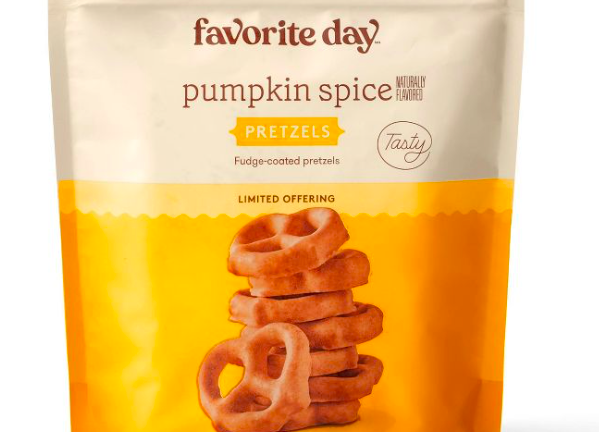
Pumpkin bliss in a jar
Face it, there are some snacks and indulgences we love but would never admit it to anyone in person — but we delight in having a spoonful or two of it when no one else is around. Fix & Fogg’s pumpkin pie butter is a supreme example. Made out of cashews, pecans, almonds and, yes, pumpkin, this 10-ounce jar of Thanksgiving happiness will guarantee you’ll never look at any squash the same way ever again. You could spread it on waffles or toast, but by the time you spoon it all, there won’t be any left.

Grain-free cookies that may even win over your rude relatives
Yes, we get it. You happen to mention you don’t eat dairy or anything gluten, and you get a Lucille Bluth judging look that makes you want to hide like Buster or roll your eyes like Lindsey (apologies if you don't get the Arrested Development references). The brand Hu has long been a leader when it comes to ethically sourced snacks such as chocolate. Well, its grain-free ginger snaps are among the goodies that would put any other brand’s cookies to shame, gluten or no gluten. Try them with the oat beverage mentioned above!
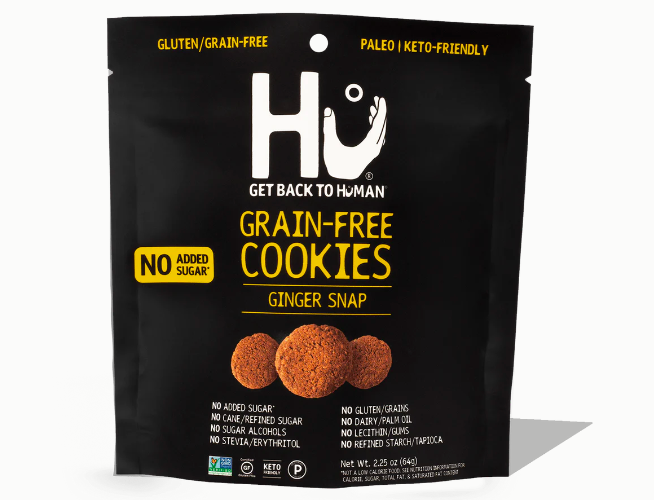
Mushroom supplements may add some magic to your mood
Okay, right. Technically, supplements are not snacks, though trying out Fungies’ mushroom-based gummies may change your mind. The lion’s mane gummies could help your overall focus, memory and healthy mood; and, unlike most berry-flavored treats, these were quite tasty. The apple-flavored reishi mushroom gummies are supposed to assist with one’s immunity, relaxation and “healthy aging.” On that last point, we’re only through about half the bottle, so don’t give up on your retinol face cream or the neighborhood Botox specialist quite yet.
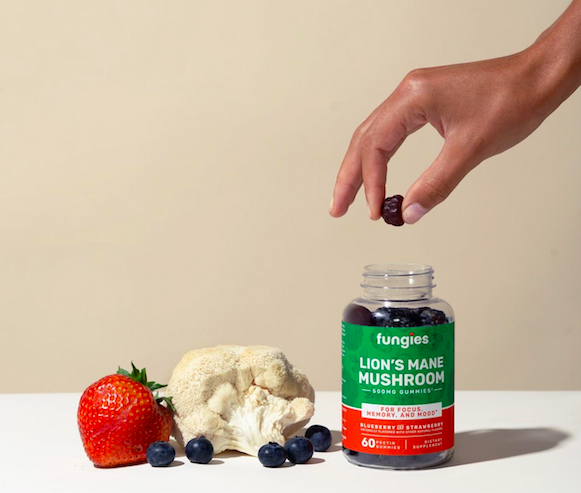
A sustainably-distilled bourbon can help get you through that MAGA vs progressive spit-spat at the Thanksgiving appetizer station. Or, make it even more dramatic.
If an old fashioned, Manhattan or spiked eggnog is in your plans, you’ve got to try the lineup from Bespoken Spirits. We were smitten with the bourbon whiskey, which evokes aromas of pumpkin pie spices, grains like pumpernickel and the sweet umami of mocha. We made a milkshake with a local vegan coffee ice cream and it was the bomb, literally (shh, don’t tell anyone, but it was after work hours). The brand’s rye whiskey has scored its share of rave reviews as well.

About that bourbon: Cancel it out the morning after with this coffee
That bourbon may have gotten you through the Thanksgiving meal, but you may be feeling it the next morning. Consider this ethically-sourced coffee from Pure Origin. With various roasts from the Congo, Kenya and Peru, the purchase of this three-pack of whole bean coffee will help fund community projects such as medical care, women’s education and clean water.

Finally, after a bananas Thanksgiving…
“It’s one banana phone, Michael. What could it cost, $10?” — Lucille Bluth of Arrested Development.
Okay, she actually didn’t say that (she was talking about real bananas), but after a bananas Thanksgiving with people with whom the only thing you have in common is DNA, you may need to decompress to your favorite tunes — or dish over the phone about all of the shenanigans with your allies. So while this is technically not a snack, the Banana Phone is shaped like one, and you’ll probably be scarfing down snacks as you recount your turkey day follies, so this makes the list.
In that case, consider the Banana Phone, which will connect to your favorite people or tunes via Bluetooth. It’s a conversation piece — literally. And, the company is donating 1 percent of its revenues to Gearing Up for Gorillas to support their preservation within the Democratic Republic of the Congo. FYI, what does it cost? $40.

Image credit: Leon Kaye
Companies That Love Renewable Energy Have the Power to Stand Against the Fossil Fuel Lobby
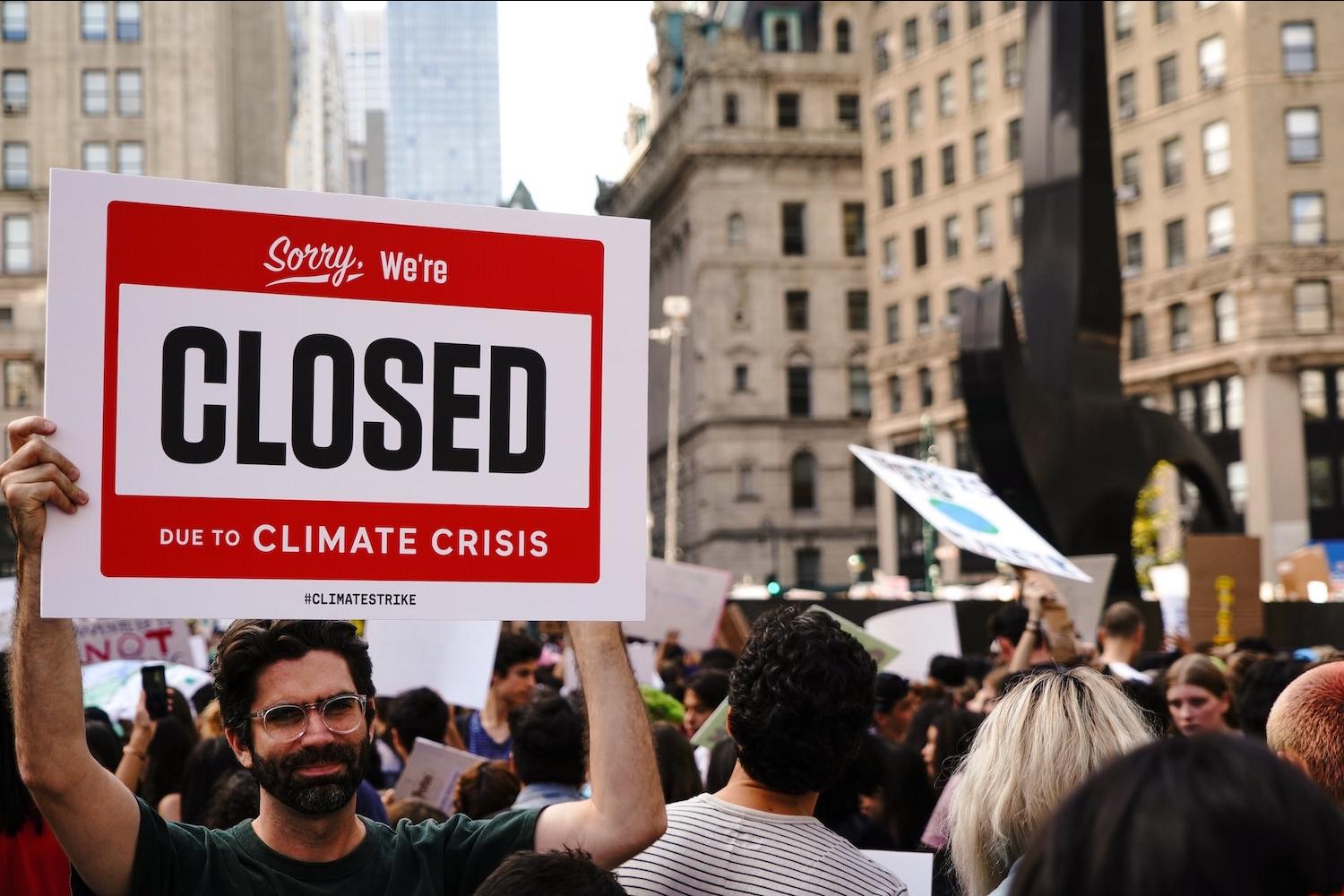
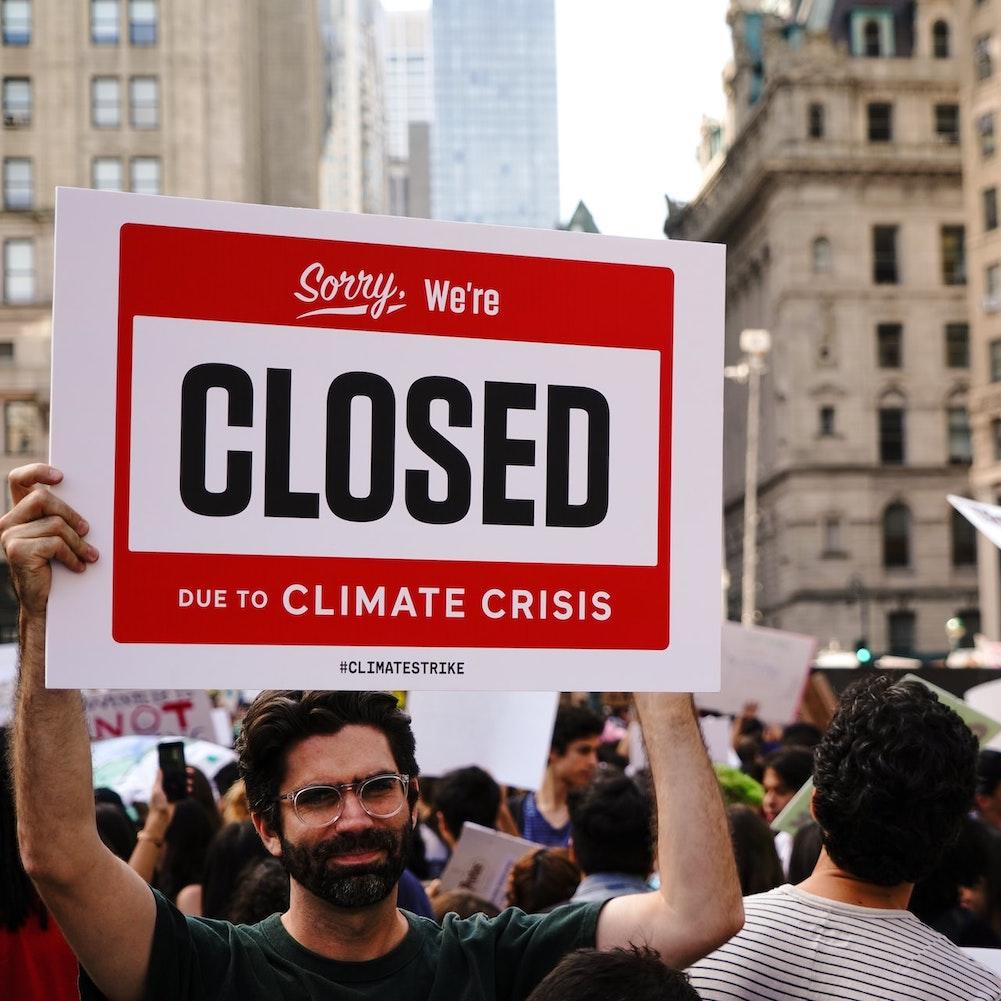
U.S. corporations are clamoring for renewable energy now more than ever before. At the same time, fossil energy stakeholders continue to lobby against progress. Their tactics range from buttonholing top-level policymakers at the COP27 climate talks on down to funding local citizen groups. Business leaders can push back against the obstruction by forming new alliances that support their needs for renewable energy.
Fossil fuel lobbyists rush to COP27
The global reach of the fossil energy industry was very much in evidence at COP27 in Egypt last week.
The organization Global Witness and its two partners, Corporate Accountability and Corporate Europe Observatory, compiled a list of 636 lobbyists directly connected to the fossil energy industry at COP27. The list is based on disclosure forms and other publicly available documents.
That was likely a significant undercount. Global Witness surmises that many lobbyists at COP27 declined to document their connections with fossil energy. The NGO also notes that the list does not include lobbyists from other fossil-related sectors including finance, big agriculture and petrochemicals.
Coalitions push back against fossil fuel lobbyists
Businesses that hope to accelerate the energy transition can support the work of organizations such as Kick Big Polluters Out to help curtail the influence of fossil energy lobbyists at the next annual U.N. climate talks.
Last week, The Guardian took note of a coalition of organizations that submitted a formal complaint against the fossil-friendly attendance policy at COP27.
The complaint was submitted to the Framework Convention on Climate Change (UNFCCC), the branch of the United Nations that organizes the annual COP climate talks.
The complaint charged that the COP talks would “continue to fail to meaningfully address the climate crisis” due to the substantial access of “polluting interests.”
“The framework should prevent entities with private, polluting interests from unduly influencing or undermining UNFCCC activities and processes through their engagement as representatives of non-governmental organizations,” the group stated.
Specifically, the group called upon UNFCCC to tighten up its access and accreditation process by applying established norms and procedures adopted by other U.N. bodies and international organizations.
Fertilizing the grassroots with big dollars
Fossil energy stakeholders are also working the other end of the scale. Local citizens can — and should — exercise their influence on local concerns. However, in the case of opposition to renewable energy, the hand of an organized, stakeholder-funded effort is at work.
The independent news organization Popular Information took note of this under-the-radar lobbying effort in an article last week. Under the headline, “Fossil fuel industry dupes media, quietly funds non-profits to block renewable energy,” reporter Michael Thomas listed three citizen groups opposed to offshore wind farms planned for the Atlantic coast: Save Our Beach View, Save Long Beach Island and Nantucket Residents Against Turbines. As Thomas reported, all three are affiliated with an organization called the Caesar Rodney Institute (CRI).
The CRI connection illustrates how fossil energy stakeholders can funnel influence to local organizations that push back against renewable energy development.
“As of this writing, the ‘Donate’ button on the Protect Our Coast NJ website redirects to a PayPal link that reads ‘Donate to Caesar Rodney Institute,’” Thomas notes.
The Delaware-based organization Meet the Polluters describes CRI as having an outsized influence over state and regional affairs. “Despite its relatively small budget, the Caesar Rodney Institute has emerged as a cog in the State Policy Network’s coordinated attacks on clean transportation policy, even if they represent no one in the state but themselves,” Meet the Polluters states on its website.
Meet the Polluters describes CRI as a “a far-right, free-market advocacy group based in Delaware that receives considerable funding from dark money sources and the Koch-controlled State Policy Network.”
“The institute is a member of and funded by the State Policy Network, a network of right-wing organizations that the Koch network funds to promote junk science, climate denial, and corporate welfare,” Meet the Polluters writes.
“It is also funded by dark money foundations including Donors Capital Fund and DonorsTrust, two pass-through funds that have been called the “dark-money ATM of the conservative movement,” that mask donations from foundations controlled by Charles Koch,” the group adds.
Beware the junk scientist
Fossil energy stakeholders have a long, well-documented record of funding efforts to sow doubt and confusion over the scientific consensus on climate change, going back for decades. It is no surprise to find these efforts resonating in the citizen-scientist area today. It is also no accident.
Ten years ago, local organizations in North Carolina began to follow the public speaking activities of one such person, John Droz, who was front and center in the pushback against offshore wind turbines.
While Droz cultivated a reputation as a citizen activist, the organization Facing South noted that he was a senior fellow with the American Tradition Institute (ATI), “a conservative think tank that's part of a family of advocacy groups founded and funded by fossil-fuel interests.”
Scientific American also published an expose on Droz’s activities back in 2013, taking note that his habitual bespectacled, sweaters-and-jeans attire helped to mask the political influencers supporting him.
“…this semi-retired real-estate investor and self-described environmental advocate spends much of his time quietly and effectively plying the halls of power in Raleigh, N.C., deflecting credit and avoiding the spotlight, observed Scientific American reporter James Borden.
Droz has ventured far beyond North Carolina in recent years. His organization “Alliance for Wise Energy Decisions” advises local groups on opposing wind projects. The fossil energy lobbying organization Heartland Institute promoted Droz and the Alliance for Wise Energy Decisions last February in a podcast headlined, “Industrial Wind: How to Fight It in your Hometown.”
Fight like a “woke”
Against this backdrop, it’s no surprise that Republican office holders and their allies have raised the “woke corporation” charge against businesses that favor renewable energy. The Republicans’ newly won but slim majority in the U.S. House of Representatives will enable them to hammer out that canard on the national stage in the years to come.
However, U.S. businesses that value sustainability have been through waves of opposition before, and each time they have upped the ante instead of backing down.
Business leaders united behind the Barack Obama administration in force in the run-up to the 2015 Paris Agreement on climate change. They also continued to double down on renewable energy all throughout the Donald Trump administration, even as the former president attempted to bend U.S. energy policy toward fossil energy. Within days of President Joe Biden taking office, business leaders also rallied for national unity on climate action.
The next two years will be challenging, but business leaders can seek new alliances with each other, as well as civic organizations and government policymakers, to keep the energy transition moving forward.
Image credit: Katie Rodriguez/Unsplash
Another Step Toward Bringing EVs to More Low-Income Communities
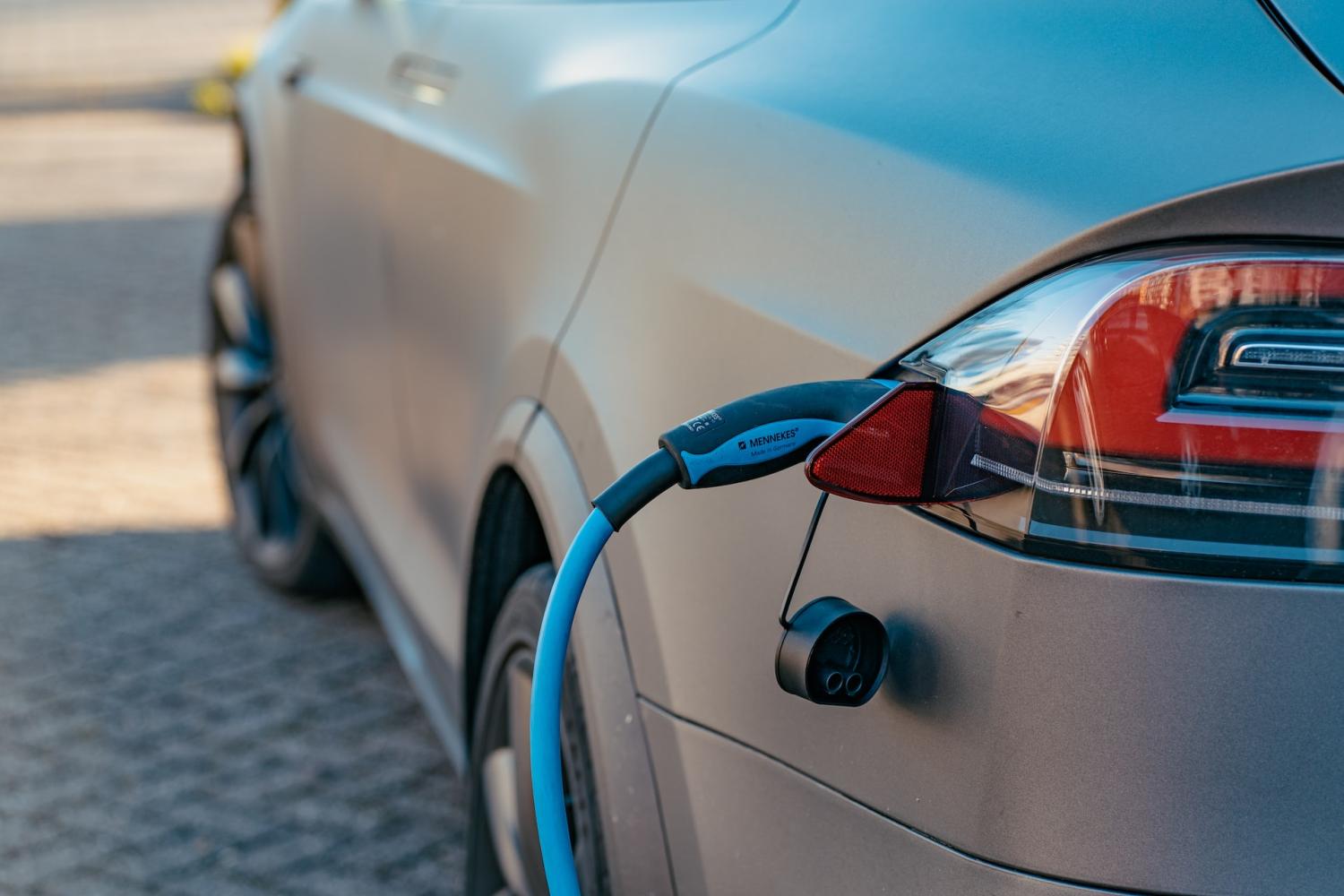
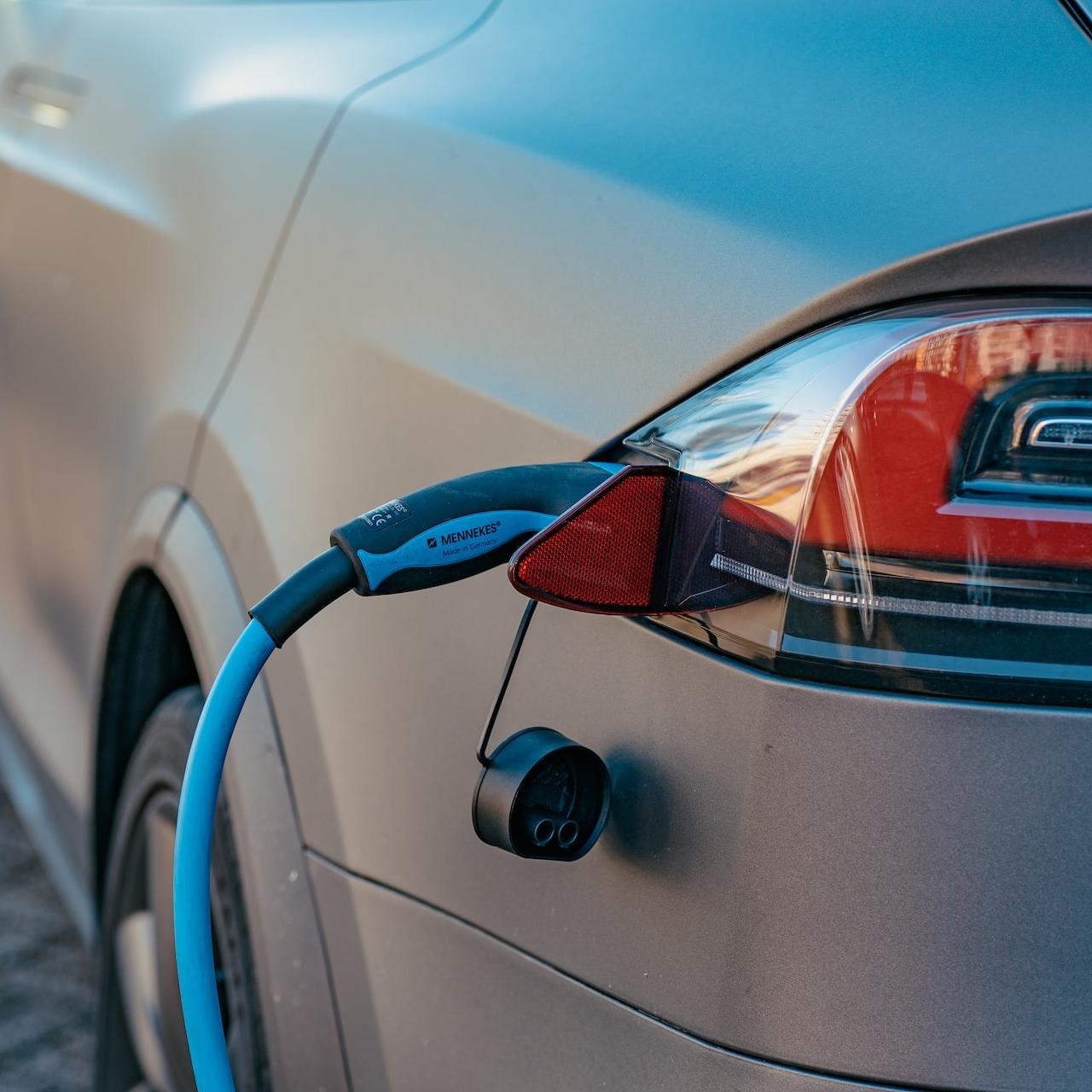
Electrify America is making an additional investment of nearly $3 million to support four community-based organizations promoting electric vehicles (as in EVs, sometimes referred to as ZEVs or zero emission vehicles) education and awareness in low-income and disadvantaged communities in California.
According to a recent press release, this new investment is part of the company’s overall commitment to environmental, social and governance (ESG) practices, and supports the company’s plan to invest $200 million in EV infrastructure and education programs in California through mid-2024.
“In the exciting race to electrify our transportation system, many communities have not had equitable access to the resources and information that can help establish adoption of electric vehicles, said Gabriela Herrera Gugiu, Electrify America’s corporate social responsibility senior specialist, in a public statement. “We believe it’s our responsibility to help create a future where zero emission vehicles can be accessible and affordable to Californians and communities across the country.”
With nearly 800 charging stations throughout the country, Electrify America is the largest open direct current (DC) fast charging network in the United States. Since 2018, the company has announced investments of more than $9 million to help accelerate electric vehicle adoption in California, which has mandated that 100 percent of new cars and light trucks sold in California must be zero-emission vehicles (full battery-electric, hydrogen fuel cell, and plug-in hybrid-electric) by 2035.
Electrify America’s new investment builds on four years of significant investments with community-based organizations (CBOs) and non-profit organizations (NGOs) in low-income and disadvantaged communities throughout California. The investments are intended to support a more equitable transition to EV vehicles.
In addition, the community-based organizations will also focus on home charging education as well as building awareness and engagement connected with Electrify America’s $25 million Green City investment to bring charging infrastructure to the Ports of Los Angeles and Long Beach and help to electrify the tens of thousands of drayage trucks that enter the Port Complex each day.
More than 100 non-profit, private and public entities from across California were invited to submit proposals to support brand-neutral EV education in disadvantaged and low-income communities. The organizations receiving funding include:
Breathe Southern California will host ride-share driver EV educational sessions, a ride-and-drive EV event at a farmer's market, and a miniature EV competition for families. Activities will take place in and around the Long Beach-Wilmington area where the Green City initiative is centered.
Ecology Action will focus on ride-and-drive events including EV showcases, EV purchase support guidance and EV webinars throughout California’s Central Coast and beyond, intended to drive community awareness broadly across the state.
Plug In America is supporting California-based EV education and engagement through ride-and-drive programs across California, EV test drives in rural communities, including the regions surrounding Green City efforts.
Valley Clean Air Now (VCAN) and key partners such as Charge Across Town will continue their comprehensive efforts that offer low-income and disadvantaged community groups in the San Joaquin Valley opportunities to test-drive EVs and to provide hands-on help with qualifying for EVs incentives through community clean car clinics and “Tune In & Tune Up” events. VCAN will also begin to recruit new car dealers to join the California Resources Board’s “Clean Cars 4 All” program, as well as additional community and government collaborations to lower barriers to EVs ownership in disadvantaged communities.
Electrify America’s new investment comes on the heels of the company’s May 2022 announcement that it entered into a 15-year virtual power purchase agreement (VPPA) to build a solar photovoltaic renewable energy generation project in San Bernardino County. Electrify America Solar Glow™ 1 is expected to generate 75 megawatts at peak solar capacity and produce enough completely renewable energy annually to help offset the energy used by Electrify America customers charging on its network.
The company is also investing in clean technology innovations to support sustainable and reliable operations, including more than 100 battery energy storage systems at charging stations throughout California to help stabilize the power grid and maintain pricing, while potentially maximizing renewable energy use from the grid.
Through 2021, Electrify America has invested $400 million in California, with nearly half of that supporting education, access, charging infrastructure and services to promote EV driving, including $18 million in education and marketing in marginalized communities throughout the state.
Expanding EV access will have major social and environmental implications for marginalized communities that have been ignored when it comes to investments in transportation infrastructure except when it comes to building highways and rail lines through those areas. According to a 2019 report, “Expanding Zero Emission Mobility and Access” by the ZEV Alliance and the International Council on Clean Transportation (ICCT), low-income and disadvantaged communities face “disproportionately large” health impacts from climate change and environmental pollution. EVs offer great potential to benefit these communities by reducing pollution and improving public health, particularly for residents who are most vulnerable.
“The unfortunate reality is that the fossil fuel industry lobbies against ZEV [zero emissions vehicles] policies by obscuring the benefits they can deliver to diverse communities and by spreading misinformation suggesting that [EVs) are for the rich only,” according to the ZEV Alliance-ICCT report. “From a moral and practical perspective, a large coalition is needed to support clean transportation, which cannot be done if [EVs] are perceived as an exclusive privilege.”
Image credit: Ernest Ojeh via Unsplash
Electric Vehicles Aren't Enough: We Need Fewer Cars on the Road


Consumer Reports presented an informational webinar on Wednesday, laying out the framework for a transition to cleaner transportation primarily via low-carbon fuels and electrification.
It’s a promising start — what with the variety of drop-in fuels that are hitting the market and price parity for electric vehicles possible as soon as 2025. The model has both government backing and the support of those automakers who have embraced its market potential, especially if that means convincing consumers to trade up sooner than later. But switching to EVs and low-carbon fuels ultimately fails to address the structural inefficiencies that result from dependence on the personal passenger vehicle as the primary mode of transportation in the U.S.
As a result, the transition is less about meeting an immediate need for substantial emissions reductions and more about keeping the auto industry afloat — ultimately falling short of the overall transformation that is needed in the transportation sector to reduce the total number of passenger vehicles produced and on the road.
Transportation is the No. 1 source of greenhouse gas emissions in the United States, according to Consumer Reports, with passenger vehicles responsible for 57 percent of those emissions. The present school of thought aims to fix this scenario by simply swapping out vehicles with internal combustion engines (ICE) for EVs, with low-carbon fuels potentially acting as a stopgap in the meantime. The U.S. government is so confident in this plan that it is investing $7.5 billion toward a charging infrastructure that will install 500,000 EV chargers across the country.
Still, gas-powered vehicles aren’t going anywhere anytime soon. Not only are many of today’s cars still going to be in operation over the next decade, but ICE vehicles are also expected to continue to constitute the majority of sales through at least 2032. This means an estimated 20 million to 36 million more of them could hit the road by 2030, which would put the number of personal vehicles in the U.S. running on fossil fuels at over 300 million.
Transitioning to low-carbon fuels may help lessen some of the sting from that many tailpipes, according to the information Consumer Reports presented last week. The idea is that drop-in fuels made from ethanol, biodiesel and hydrogen could have a lower overall carbon output. There are caveats, of course. Ethanol and biodiesel made from corn and other foods raise ethical concerns — though moves toward producing the fuels from waste products, algae and other non-food sources are promising. Likewise, e-fuels require substantial electricity to make, and the infrastructure to produce them is lacking.
Regardless of whether a vehicle runs on gas or electricity, a substantial amount of carbon emissions are produced in its construction, with EVs actually responsible for a higher initial carbon output (though they make up for it after being driven for a while). Not to mention the resources and environmental degradation involved in mining lithium — a necessary evil when it comes to electrification with current mainstream technologies. In fact, replacing fossil fuels with batteries is starting to look a lot like swapping out one environmental catastrophe for another.
So, what’s the fix? Certainly, there comes a point where we have to accept that our Earth is finite. It does not contain unlimited resources, and it cannot absorb unlimited pollution and abuse. Transitioning to low-carbon fuels and EVs simply is not enough. What’s more, upgrading to electric while the ICE vehicle in the driveway is still running strong could do more harm than good for the environment. The personal passenger vehicle as a primary mode of transportation is just not sustainable for a planet with 8 billion people living on it.
Image credit: Filip Filkovic Philatz/Unsplash
How the Circular Economy Can Ensure a Just Global Energy Transition


As the world focuses on reducing greenhouse gas emissions and decarbonizing energy, moving away from fossil fuels is a primary objective. But this change brings with it a new set of challenges — namely how to provide the resources for cleaner energy without repeating the mistakes of the fossil fuel economy, such as devastating impacts on the environment, loss of biodiversity, destruction of local communities and wasted resources.
One approach, which was the focus of a roundtable discussion during the COP27 climate talks, highlights the ways that incorporating a circular economy framework into the development of clean energy can contribute to a just transition — as in shift to a low-carbon global economy that is socially equitable, financially viable and environmentally regenerative.
Incorporating the circular economy in the energy transition
Unfortunately, the transition to new sources of energy will require a ramp up of mining for new materials while we move away from fossil fuels. A recent U.S. Department of Energy study, for example, suggests that the U.S. energy system will need more than 3 terawatts of solar capacity in order to decarbonize, which is more than a 40 percent increase over current capacity. Since solar panels require metals and minerals like cadmium, gallium, copper and zinc in order to work, more solar capacity means greater demand for these materials.
It is possible to apply the lessons that have been learned from current mining practices to reduce the impact moving forward. Furthermore, increasing efficiency and designing for reuse of materials can reduce the overall need for materials and ultimately lead to a reduction in extraction.
The Energy Transitions Commission — a global coalition of energy producers, energy-intensive industries, technology providers, financial players and environmental NGOs that are committed to achieving net-zero emissions by mid-century — is looking at several different scenarios to reduce impact. That includes exploring how to reduce the current projected need for new materials through increasing efficiency and developing circular strategies for recycling and reuse of materials, Mike Hemsley, deputy director of the Commission, said at COP27. Furthermore, technologies that utilize materials that are currently available in abundance are being examined.
At the other end of the lifecycle, the U.S. National Renewable Energy Laboratory (NREL) is developing strategies to deal with solar waste. These include designing “integrated energy systems'' that combine advancements in generation, storage, efficiency and smart controls; moving toward zero-carbon manufacturing and materials; and identifying and utilizing alternative materials that are most “Earth abundant” and “most benign,” said Ron Benioff, international program manager for NREL.
At this time, recycling solar waste is more expensive than disposal, Benioff said. But policy innovations — including setting standards for recyclability, offering financial incentives and engaging in consumer education — could offset this and support circularity, he told leaders at COP27.
Enel, a global utility company based in Italy, has identified a process to provide clean energy through a circular economy by relying on renewable and recyclable resources — and requiring its suppliers to do the same.
The company is working to achieve circularity “not only by recycling but by design,” said Luca Meini, head of sustainability initiatives and circular economy at Enel. The company began offering financial incentives and collaboration with its more circular suppliers, and Meini says that circularity has to be a part of the framework of the core business. The result has been profound, and the company has continued to make a profit.
Pushing toward a just transition
There is a “dual mandate to build the decarbonized future and to think today about how we create the financial and business models and distribute our finance and support in ways that will allow that to go forward in a more equally distributed approach,” said Jennifer Layke, global director of the Energy Program at the World Resources Institute (WRI).
To this end, she identified three areas of focus. These include “to innovate product design at the outset” to minimize material use through reuse of resources that are currently available. Stakeholders must also work to identify the “business model shifts” that will be required to create “lifecycle opportunities” for takeback and circularity, and they’ll be challenged to address the “inequality in benefits to the communities that are impacted by the extraction and production of materials,” Layke said.
When looking to decarbonize, energy stakeholders must “start projects from the beginning that are going to benefit the local economy and not have adverse impact on the local environment,” Hemsley of the Energy Transitions Commission added. “Once those projects are done, how can you then return the land to what it was before so you can have as little impact as possible?”
The public has the power to push this vision into reality, Hemsley insisted — pointing to consumer activism that spurred recent changes in the auto industry. As consumers grew more aware of problems with cobalt mining, automakers have moved swiftly to replace cobalt with nickel in electric vehicle batteries, and stakeholders are continuing to push the industry to more closely consider environmental impact and human rights when sourcing EV battery components.
Image credit: Matthew Henry/Unsplash